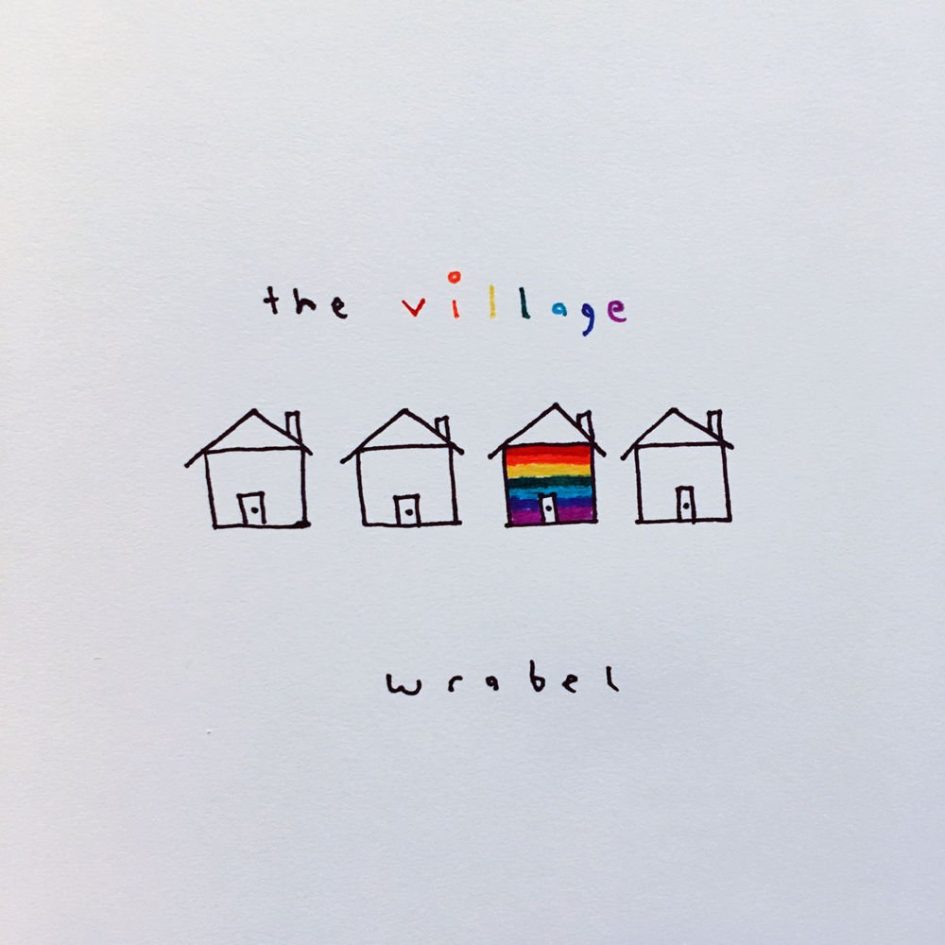Wrabel’s social critique in this song is overall more explicit than it is subtle. He focuses on two main groups that contribute to the issue: society as a whole and then, more specifically, the Church.
The first verse of the song focuses more on the effects of an unaccepting family on an LGBTQ+ person. Wrabel brings in quotes from the family members, things that a trans person in particular might hear if they made an attempt to come out to their family or to try to make physical changes in order to more accurately reflect on the outside how they feel internally.
They say, “don’t dare, don’t you even go there. Cutting off your long hair. You do as you’re told.”
Tell you, “wake up, go put on your makeup. This is just a phase you’re gonna outgrow.”
In the second verse, Wrabel pivots to the topic of religious bigotry against LGBTQ+ people. Someone in this community, especially a young person, might have to endure bullying or hatred from Monday to Friday at school, and even if they have Saturday to recover from all of the hate, having to go to Church on Sunday can make all of the bad feelings resurface.
Feel the rumors follow you from Monday all the way to Friday dinner
You got one day of shelter, then it’s Sunday hell to pay, you young lost sinner
Wrabel admits that he’s gone to dark places because of how religion was forced onto him, even implying that he himself prayed that he wouldn’t be gay.
Well I’ve been there, sitting in that same chair
Whispering that same prayer half a million times
The most damning critique of the Church is the lyric “One page of the Bible isn’t worth a life,” which is a commentary on how so many young LGBTQ+ people have taken their lives as a result of the ideas put in their heads by religious groups that they are inherently sinful or evil. This is one of the more important critiques made in the song, especially considering that studies like this one reported on by the Huffington Post have cited stark correlations between suicidal ideology and the presence of religion in a LGBTQ+ person’s life. This study from the Journal of Religion and Health reports a more complex set of results: religious affiliation was found to create much more internalized homophobia, but may have actually been preventative when it came to suicide attempts. Either way, religion is clearly a stressor on LGBTQ+ people, especially youth.
The chorus of the song develops in a way that twists a prejudiced narrative on its head. Wrabel starts with “There’s something wrong in the village,” and one understanding of this might be that the “something” is the person the song is about (i.e. anybody in the LGBTQ+ community). Then comes, “They stare in the village,” followed by “There’s nothing wrong with you, it’s true.” Wrabel is taking this idea that the “something wrong” is not the LGBTQ+ person in question, but rather the society that has villainized them. This is further solidified when he changes the wording of the first line at the end of the chorus to “There’s something wrong with the village.”
Wrabel’s vocal delivery absolutely plays into the message he’s portraying. Especially in the song’s chorus, he sings with such earnest emotion, and there’s obvious pain behind his voice. The pop ballad style of the song is also perhaps the best way this song could have been done. It’s beautiful and impactful, and because the tempo is slower and the instrumentation is on the simpler side, it forces the listener to focus much more on the lyrics.
While a lot of critique is being made, Wrabel doesn’t offer much in the way of suggestions for change. Some of it is certainly implicit, though; by pointing out the harming effects that familial or religious hatred can have on a person, Wrabel is urging that people who may be guilty of these kinds of bigotry change their way. This is not to say that the song is too idealistic; rather, Wrabel’s intention is more to affirm and support those who may have been victim to the kind of societal prejudice that he admittedly has been himself. He’s not suggesting “love” as a solution, he’s just asking that unnecessary hate ceases.

Leave a Reply